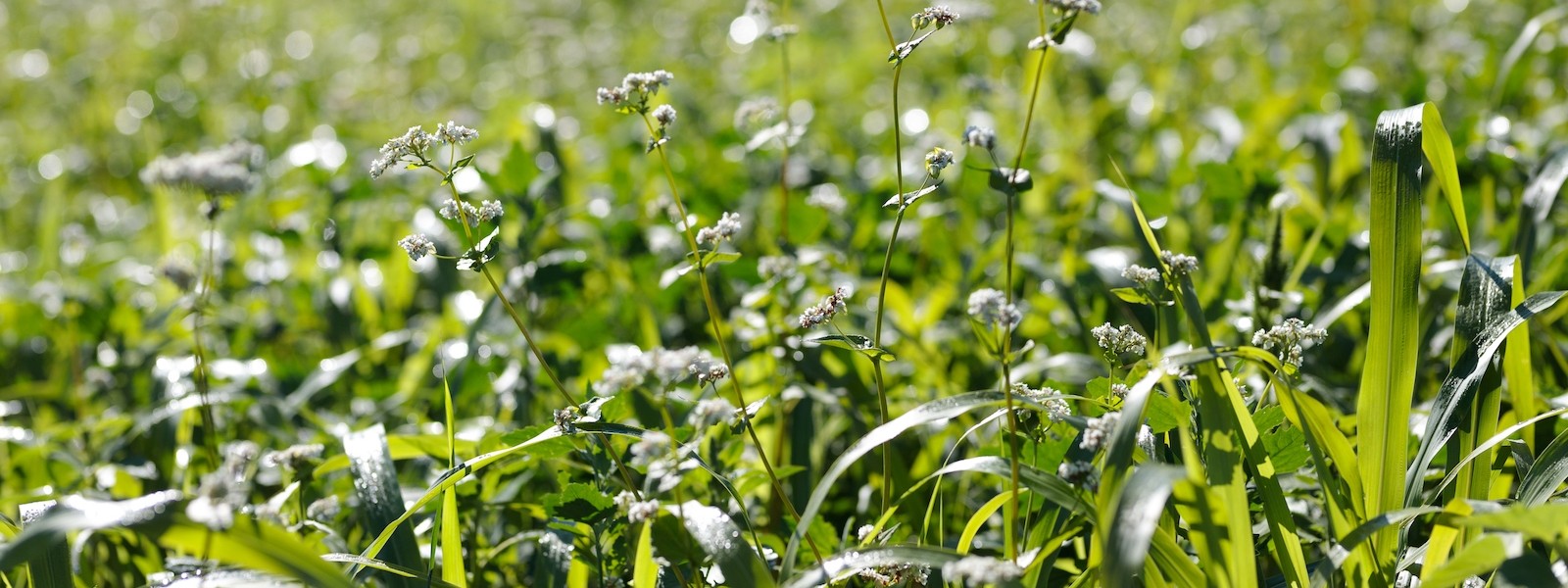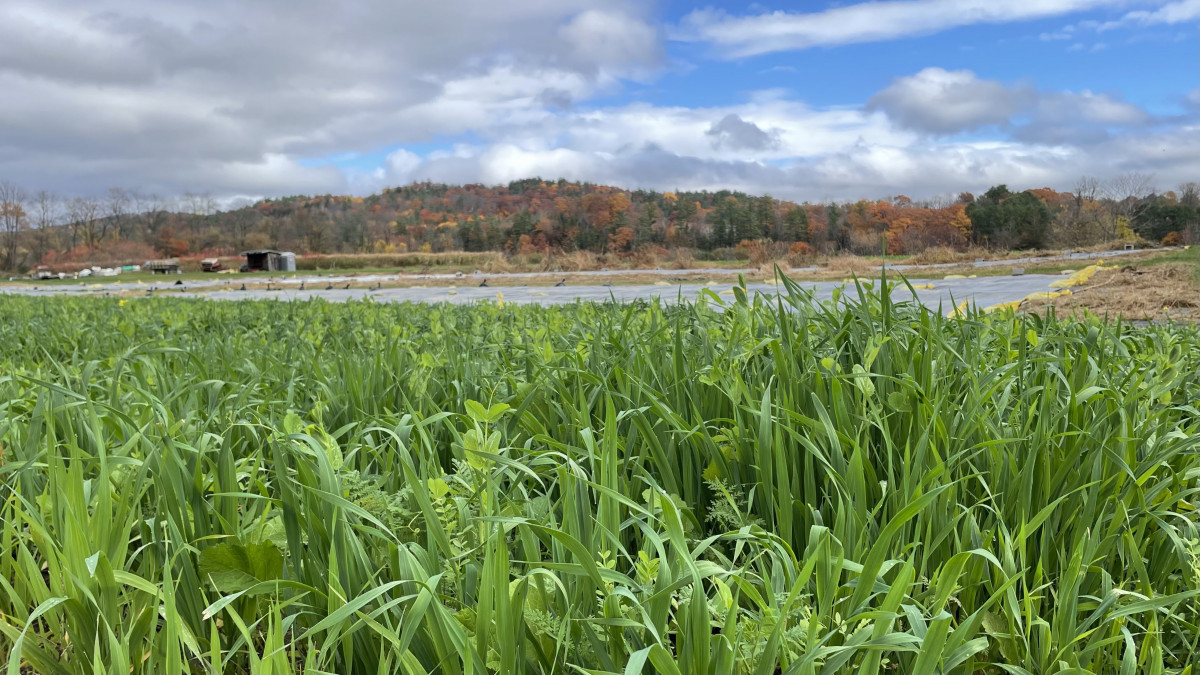
Our Growing Practices
We aim to positively impact our land, our community, and our environment through the use of regenerative and organic growing practices. We are continually striving to improve our practices, so as to maintain and increase the health of our environmental, human, and financial resources.
Our farm is certified organic by VOF, the USDA-accredited certification program of NOFA-VT. We also have an add-on certification through the Real Organic Project. Together, these certifications hold us accountable to the continual use of organic practices, as well as thoughtful seed and plant stock sourcing, fair labor standards, and building soil health through regenerative action.
How Do We Do This?
No-Till and Low-Till
Reduced tillage, which includes both no-till and low-till farming methods, is a practice that aims to minimize soil disturbance to maintain the integrity of the ecosystem within the soil. This practice involves both minimizing the frequency and amount of soil disruption, such as by using only small furrows for planting.
We are moving towards low-till and no-till practices, though we currently employ some traditional tillage methods. This shift is being implemented gradually in select areas of our farm to help us find the best combination of management practices for long-term success while supporting our community’s needs.
Cover Cropping
We grow cover crops for their benefits to the soil, ecosystem, and watershed. Planted between cycles of main cash crops (crops that yield saleable produce), as well on walkways and other open spaces, each mixture of seeds is specifically chosen to add nutrients back to the soil.
Cover crops create a blanket of plant biomass and residue that protects against the loss of topsoil (due to wind or rain), helps resist compaction, and inhibits weed growth. Deep roots create a habitat for the organisms that live beneath the soil, supporting nutrient cycling and making nutrients available in the root zone of production crops.
Weed Management
When unchecked, weeds can deprive plants of the space, water, sunlight, and nutrients that they need to produce healthy fruits and veggies. Most of our weed suppression tactics fall under the umbrellas of mechanical and physical cultivation. We use mulch to smother weeds, tillage to break up and expose their root systems, and soil solarization and occultation. Our farmers also spend countless hours in the fields, hoeing and hand pulling weeds.
Pest Management
Pests can either damage leaves or munch on the produce itself, hindering the plant’s health and resulting in a smaller or sickly harvest. We opt for non-synthetic solutions to these problems.
Aphid and thrip pressure can be common in our greenhouses. As a preventative measure, we introduce lacewing and cucumeris mites early in the season, both of which will prey on the harmful bugs. We continue to introduce live bugs to our greenhouses as the season progresses and other pests appear.
In our vegetable and fruit fields, pest management involves hand-removing hornworms, cucumber and Colorado potato beetles, and any other insects in addition to organic interventions.
Field Rotations
When crops are grown in the same soil for successive years, nutrients in the soil become depleted by continual use, and the likelihood of pest infestation or disease increases. We rotate our crops annually, making sure that crops from the same plant families are planted in different fields year to year.
Perennial Growing Systems
We have established perennial crops like asparagus, blueberries, apples, and raspberries that serve as food sources for wildlife, including insects, as well our community.
Cedar Circle has been focusing on creating more on-site habitat by building out herbaceous perennial beds with a focus on native plant species. The multitude of benefits these perennial spaces provide include: reduced soil disturbance and deep root systems that help protect our soils; year round habitat for overwintering insects and food source for other wildlife; insectaries to support beneficial insects and pollinators that support our annual crops; and early blooms to support native pollinators in the spring.

